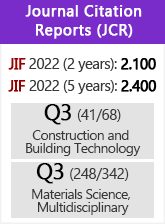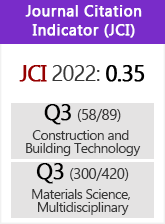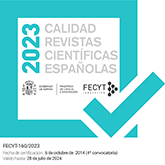Alkaline cement mortars. Chemical resistance to sulfate and seawater attack
DOI:
https://doi.org/10.3989/mc.2002.v52.i267.326Keywords:
alkaline cement mortars, alkali activated slag cements, durability, sulfate and sea water attackAbstract
The durability and chemical resistance of alkali activated slag and fly ash/slag mortars in contact with sulfates and seawater media have been studied. Two methods were used in the evaluation of such durability: Kock-Steinegger and ASTM C1012. A mineralogical and a microstructural characterization of mortars were done at different ages of their conservation in aggressive media through XRD, SEM/ EDX and mercury porosimetry. Results showed a high durability of activated cement mortars in sulfates and seawater media. NaOH activated mortars are the most sensitive to environment attack with formation of expansive products as gypsum and ettringite, although in very low proportion.
Downloads
Download data is not yet available.
Downloads
Published
2002-09-30
How to Cite
Puertas, F., Gutiérrez, R., Fernández-Jiménez, A., Delvasto, S., & Maldonado, J. (2002). Alkaline cement mortars. Chemical resistance to sulfate and seawater attack. Materiales De Construcción, 52(267), 55–71. https://doi.org/10.3989/mc.2002.v52.i267.326
Issue
Section
Research Articles
License
Copyright (c) 2002 Consejo Superior de Investigaciones Científicas (CSIC)

This work is licensed under a Creative Commons Attribution 4.0 International License.
© CSIC. Manuscripts published in both the printed and online versions of this Journal are the property of Consejo Superior de Investigaciones Científicas, and quoting this source is a requirement for any partial or full reproduction.All contents of this electronic edition, except where otherwise noted, are distributed under a “Creative Commons Attribution 4.0 International” (CC BY 4.0) License. You may read here the basic information and the legal text of the license. The indication of the CC BY 4.0 License must be expressly stated in this way when necessary.
Self-archiving in repositories, personal webpages or similar, of any version other than the published by the Editor, is not allowed.

















